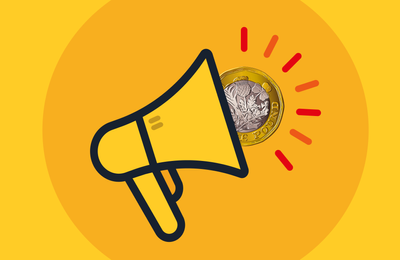2.3 million households estimated to have missed bill payments in January

An estimated 2.3 million households missed or defaulted on at least one mortgage, rent, loan, credit card or bill in January 2023, according to the latest findings from the Which? Consumer Insight Tracker.*
Missed payments typically peak in January following the Christmas period, and this year’s missed payment rate is similar to those of the past two years.
However, it's a jump compared to December, when 1.9 million households were estimated to have defaulted on or missed a payment.
Here, we reveal how people are cutting back and how Which? can help you keep on top of your bills.
'I can no longer afford to socialise'
Six in 10 people told us they made at least one financial adjustment – such as cutting back on essentials, selling personal belongings or dipping into savings – in the past month to cover their essential spending in January. This equates to an estimated 16.5 million households.
This is a significant increase on the four in 10 seen this time last year, but lower than the peak of close to two-thirds in September 2022.
The increase in the proportion of households making adjustments during the cost of living crisis is largely down to more households cutting back on essentials like utility bills, housing costs, groceries, school supplies and medicines.
A 46-year-old man from Northern Ireland said: 'I find it hard to sleep. I am eating less due to money and worry. My mortgage has risen significantly. I am finding it hard to cover the cost of energy bills. As I live in a rural area, I can no longer afford to socialise with friends and family due to the cost of fuel. I am feeling more isolated than ever.'
- Find out more: what to do if you can't pay your mortgage
How households are cutting back
The number of households cutting back on essentials has increased from three in 10 in January 2022 to four in 10 this January.
In addition, we also found the proportion of households dipping into savings increased from just over a quarter of households to three in 10.
Find out more about what percentage of people made financial adjustments in January 2022 and January 2023, and what type of change they made, using the table below.
| Type of financial adjustment | January 2022 | January 2023 |
|---|---|---|
| Any adjustment | 49% | 59% |
| Cut back on spending on essential household items | 27% | 38% |
| Taken money out of savings account | 26% | 29% |
| Used an overdraft facility | 10% | 10% |
| Borrowed money from family or friends | 9% | 10% |
| Sold or pawned assets (e.g. clothing, jewellery) | 7% | 9% |
| Taken out new credit card or borrowed more using an existing card | 7% | 8% |
| Taken out short-term loan for essential spending | 3% | 3% |
- Find out more: best ways to save money
How inflation is impacting different households

Which? also analysed Office for National Statistics (ONS) data and found that different household types and income groups experienced different levels of inflation last year.
Households on the lowest incomes experienced much steeper increases in inflation in 2022, peaking at an estimated 11.5% in October 2022.
This was almost 3% higher than the estimated inflation rate for the highest income group (8.6%), and the largest inflation gap Which? has estimated between income groups since its lived inflation estimates began in 2016.
Menwhile, single parent and retired households have experienced a particularly high lived inflation rate compared to other types of households, as they spend a greater proportion of their budget on food, energy and fuel, which have all seen huge price hikes during the cost of living crisis.
- Find out more: cost-saving tips for parents and read our pensions and retirement advice
How Which? is helping with the cost of living crisis
Which? experts have compiled the latest news and advice to help households cut costs, save money on bills this winter and beyond.
You can also answer a few short questions below to get more tailored advice for your circumstances.
Are you worried about your finances?
Answer a few questions and we'll give you a tailored list of expert advice that will help you manage your finances.
Get started
Which? believes essential businesses can and should support people through the cost of living crisis and we recently launched a campaign calling on essential businesses – energy firms, broadband providers and supermarkets – to do more to help people struggling to make ends meet.
We want businesses to ensure that people have access to the best value products and services. For example, supermarkets should increase the availability of own-brand budget ranges in stores, particularly in low-income areas.
- Find out more about our cost of living campaign calls
*The Consumer Insight Tracker is a monthly online poll by Yonder on behalf of Which?. It is weighted to be nationally representative, with approximately 2,000 respondents for each wave. Based on the survey and the ONS estimate for the number of households in 2020 of 28.1 million, Which? estimates that 2-2.6 million households missed a payment in the last month, with an average estimate of 2.3 million. .




